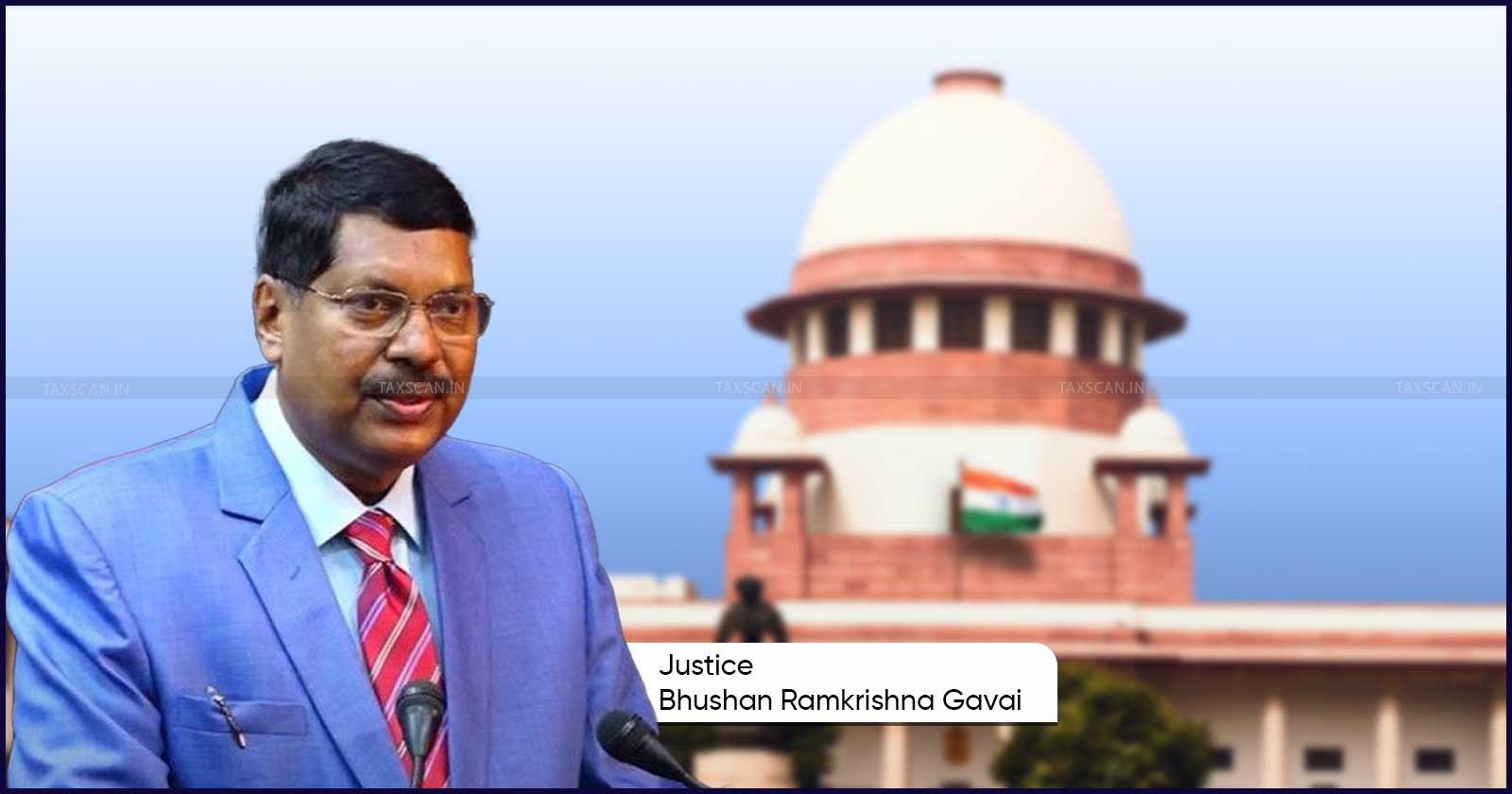Journey from Ambedkarite Legacy to 52nd Chief Justice of India: Justice Gavai
Justice Bhushan Ramkrishna Gavai will be the first Chief Justice of India from the Buddhist community and a Scheduled Caste background, marking a historic milestone in the judiciary. His tenure will last until November 23, 2025

Justice Gavai – 52nd Chief Justice of India – Ambedkarite Legacy – taxscan
Justice Gavai – 52nd Chief Justice of India – Ambedkarite Legacy – taxscan
Justice Bhushan Ramkrishna Gavai, the first Buddhist to hold the position, took oath as the 52nd Chief Justice of India(CJI), succeeding Justice Sanjeev Khanna. The President Droupadi Murmu oversaw the oath of office. Justice Gavai will serve until November 23 2025, marking a tenure of six months and nine days.
Justice Gavai’s appointment marks a historic moment, as he becomes one of the few Chief Justices from a Scheduled Caste background and a prominent Ambedkarite lineage. He is the first Chief Justice of India from the Buddhist community.
Early Life
Born on November 24,1960 ,in Amravati, Maharashtra to Ramkrishna Suryabhan Gavai (late) and Kamala. Justice Gavai’s father R.S Gavai was a eminent political figure who was a founding member of the Republican Party of India (Gavai) and a close associate of Dr. B.R. Ambedkar. He had served as Governor of Bihar, Sikkim, and Kerala between 2006 and 2011. He succumbed in 2015.
How Does the Supreme Court Shape Tax Laws? Discover Landmark Rulings! - Click Here
Justice Gavai has widely regarded Dr. Ambedkar’s vision and reforms for his rise from modest beginnings. “It is solely due to Dr B R Ambedkar’s efforts that someone like me, who studied in a semi-slum area at a municipal school, could attain this position,” he remarked during a speech in April 2024.
Legal Career
Justice Gavai embarked on his legal profession on March 16, 1985. He commenced his professional association with Raja S. Bhonsale(Late), former Advocate General and Judge of the Bombay High Court, prior to going independent in 1987.
In the span of his career he specialized on constitutional and administrative law and functioned as Standing Counsel for several municipal corporations and educational institutions in the Vidarbha region. His government appointments included responsibilities as Assistant Government Pleader and Public Prosecutor at the Nagpur Bench of the Bombay High Court.
How Does the Supreme Court Shape Tax Laws? Discover Landmark Rulings! - Click Here
He was designated as an Additional Judge of the Bombay High Court in 2003 and became a permanent Judge in 2005. He chaired benches across Mumbai, Nagpur, Aurangabad, and Panaji, over the course of his service and then took office as a Judge of the Supreme Court of India on May 24, 2019.
Judicial Contributions and Notable Verdicts
Justice Gavai,during a span of six years at the Supreme Court, has contributed to around 700 benches and rendered over 300 judgments across a broad spectrum of law counting constitutional, civil, criminal, commercial, arbitration, environmental, and human rights law.
In politically controversial cases he is renowned for his fair and focused on rights based judicial approach.He chaired benches that provided vital procedural safeguards against arbitrary arrests under stringent laws like the Unlawful Activities (Prevention) Act (UAPA) and the Prevention of Money Laundering Act (PMLA). In significant cases involving Newsclick editor Prabir Purkayastha and former Delhi Deputy CM Manish Sisodia, his bench underscored the importance of due process.
How Does the Supreme Court Shape Tax Laws? Discover Landmark Rulings! - Click Here
In November 2024, Justice Gavai’s bench ruled that demolishing citizens' properties without proper legal procedures was a violation of the rule of law. He was also part of the historic seven-judge bench that upheld sub-classification within Scheduled Caste reservations. In his separate opinion, he drew parallels between resistance to sub-categorization and the historical discrimination SCs have endured from upper castes.
Some of the most significant ones are:
1. Demonetization(2023)
In Vivek Narayan Sharma v. Union of India, Justice Gavai wrote the majority judgment upholding the legality of the Centre’s 2016 demonetisation policy. The Court affirmed that the policy was justified, proportionate to its aims, and executed after adequate discussions with the Reserve Bank of India.
How Does the Supreme Court Shape Tax Laws? Discover Landmark Rulings! - Click Here
2.Abrogation of Article 370 (2023)
Justice Gavai served on the five-judge bench that upheld the Centre’s decision to revoke Jammu and Kashmir’s special status. Although the verdict drew controversy, it reaffirmed the Court’s role in interpreting constitutional authority within the federal framework.
3. Electoral Bond Scheme( 2024)
Justice Gavai was on the unanimous Constitution Bench that invalidated the 2018 Electoral Bonds Scheme, holding that it breached voters’ right to information and eroded transparency in political funding.
How Does the Supreme Court Shape Tax Laws? Discover Landmark Rulings! - Click Here
4.Sub-Division among SC/ST Communities(2024)
In State of Punjab v. Davinder Singh, Justice Gavai supported the majority decision allowing sub-classification within Scheduled Castes and Scheduled Tribes, facilitating more targeted affirmative action for the most marginalized sub-groups.
International Engagements
During the international judicial forums held in Mongolia, the U.S., the U.K., and Kenya Justice Gavai has served India.Prestigious institutions including Columbia University and Harvard University, he has spoken addressing constitutional and environmental issues.
How Does the Supreme Court Shape Tax Laws? Discover Landmark Rulings! - Click Here
During the farewell ceremony speech the outgoing CJI Sanjeev Khanna added that ”I am sure that you have in Justice Gavai an excellent Chief Justice who’s going to uphold the institution, who’s going to uphold the fundamental rights, who’s going to uphold our basic doctrines which we have adopted and applied.”
Though his time as Chief Justice will be brief, Justice Gavai is expected to uphold the Constitution, stand for social justice, and protect the rule of law, values shaped by his long career and Ambedkarite roots.
Support our journalism by subscribing to Taxscan premium. Follow us on Telegram for quick updates


